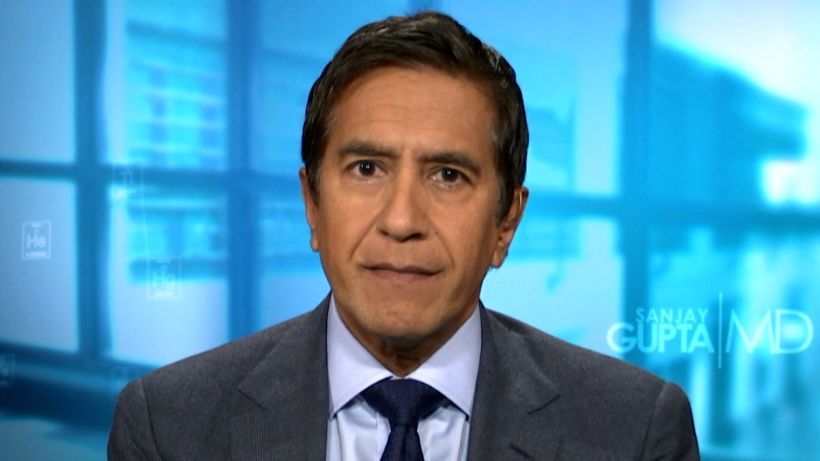If all has gone well with its clinical trial, Johnson & Johnson’s Covid-19 vaccine will likely be the next one available in the United States.
Last week, National Institute of Allergy and Infectious Diseases Director Dr. Anthony Fauci said that Johnson & Johnson is “right around the corner” from seeking emergency use authorization for its Covid-19 vaccine from the US Food and Drug Administration.
The company said it’s on track to have interim data from its clinical trial by the end of January. The company has a shareholder call on its fourth-quarter results Tuesday.
Still, it can take weeks for the vaccine to make it through the US Food and Drug Administration’s authorization process and it’s not clear yet when any of those key steps will take place.
The two vaccines already available in the United States are highly effective, but all eyes are on Johnson & Johnson’s, which is only a single dose and would be much easier to administer.
“If this vaccine proves to be safe and effective, it could have major implications for the vaccine rollout because J&J has committed to producing and deploying at least a billion doses of vaccine during this calendar year, including at least 100 million doses for the U.S. population,” said Dr. Dan Barouch of Harvard Medical School, who helped develop Johnson & Johnson’s vaccine candidate.
“If it’s a single-dose vaccine, then a billion vaccine doses would translate into a billion people vaccinated,” Barouch said Monday on CNN’s Coronavirus Fact vs Fiction podcast.
Waiting for trial results
J&J Phase 3 trial involves 40,000 volunteers; the company cut the trial down from 60,000 because of the surge in Covid-19 cases around the country.
Like with the other Covid-19 vaccine trials, the goal is to see how well the vaccine protects participants. The company recruits from different demographic groups and people with varying health statuses. Researchers give half the group the vaccine and half the group a placebo, which does nothing, and then monitors who gets sick and whether safety issues arise.
Results from J&J’s Phase 1/2a trials showed that the single dose of the vaccine induced a strong immune response in nearly all the people who got the vaccine. The immune response was similar across the age groups, according to the company.
“A single dose would have big logistical implications,” said Michael Haydock, the senior director at Informa Pharma Intelligence. “In terms of the rollout it could really speed things up and simplify things quite considerably.”
The US has ordered 100 million doses and the company has been manufacturing it while it has been testing the vaccine. Typically, companies wait to make the vaccine after its been approved, but that changed during the pandemic.
“Of course, the big question is, will it work?” Haydock said.
Steps to authorization
Once there’s an answer to that question, the data will get a close look from the FDA and advisers to the US Centers for Disease Control and Prevention.
The process for the Johnson & Johnson vaccine should be the same as it was for the Moderna and Pfizer vaccines, according to Dr. Paul Offit, director of the Vaccine Education Center at the Children’s Hospital in Philadelphia and a member of the FDA’s Vaccines and Related Biological Products Advisory Committee.
The change in leadership at the FDA and CDC should not make a difference in how long the process takes.
“I don’t think it’s going to change at all under the new administration,” said Offit.
If the data from the Phase 3 trial shows that J&J’s Covid-19 vaccine works and is safe, the company will then request what’s known as an emergency use authorization, or an EUA, from the FDA.
Under an EUA, the FDA will allow the use of unapproved medical products to treat or prevent serious or life-threatening diseases when there is no adequate or approved alternative. The FDA’s career scientists and physicians will do a comprehensive review of the data to determine if the results meet its criteria.
While the FDA is reviewing the data, it schedules a public meeting of its Vaccines and Related Biological Products Advisory Committee. The committee is made up of independent science and public health experts who will discuss the J&J data and make a recommendation to the agency.
After the meeting, FDA staff members consider the committee input along with the agency’s evaluation of the company’s data and will make a decision about whether the vaccine should by authorized.
With the Pfizer vaccine, it took a little over three weeks from the time the company submitted its data to an EUA. With the Moderna vaccine, it took a little more than two weeks.
Get CNN Health's weekly newsletter
Sign up here to get The Results Are In with Dr. Sanjay Gupta every Tuesday from the CNN Health team.
Shortly after an EUA, the CDC’s Advisory Committee on Immunization Practices, also known as ACIP, goes through the data, too.
ACIP is a group of medical and public health experts who make recommendations on how the vaccine should be used in the population. The committee’s suggestions become the guidance used to determine which demographic groups should get the vaccine.
Once the CDC committee has made a recommendation and it has been approved by the CDC director, vaccines can be shipped and can go into arms.
CNN’s Amanda Sealy contributed to this report.



















